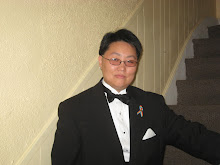Charles habitually called both Morgan and Michael daddy. No one corrected him. It was too cute. No one disputed he would be the next baron, either. The two men jointly trained him for the role. One night, he climbed into a seat at a table where the two were discussing a diplomatic situation.
“There is no official positon and I haven't been instructed that we have one,” Michael commented. Morgan listened intently, drumming his fingers softly on the tabletop, a stylus perched between his middle and forefinger.
“In the long run, I think the accord will be useful. It the short term, it will incite riots, possibly a revolution,” Morgan responded.
“And that would be economically beneficial to foreign money?” Michael queried.
“It wouldn't look very nice, but insurrection is brewing either way. Let it happen. Let the air clear and then invest in actual progress.”
“I'd like to think there is some way to derail the revolution too.”
“Both sides are bloated self-serving ticks living off the blood of their subjects. They won't learn peace throuh any of these petty warlords.”
Charles had the enviable position in the household of being allowed to listen when the two were talking in Morgan's private study. There was no possibility of sneaking in or listening at the door as Morgan could always sense it. Charles leaned over into Michael's lap. “What are you talking about, Daddy?”
Morgan smirked as Charles's presence took Michael by surprise. “Oh! Eh...we were discussing world politics.”
“Yes, in the same way talking about bicycles is discussing renewable energy,” Morgan said snarkily.
Charles tried to read the papers in Michael's hand. “Africa?”
“There are areas of conflict in Africa. We were considering getting involved financially. The living conditions are deplorable in many areas and we think providing jobs will allow them to improve,” Michael exposited
“And, if we can covertly help create and back stable governments, they can owe us favors down the line,” Morgan added.
“Having someone owe us favors isn't as good as owing us money,” Charles theorized.
“Actually,” Michael said,” it's better than money. When someone owes us a favor, we keep track of it. We call on it when we truly need it. When money isn't enough or the proper way to deal with a situation, we have influence. There isn't a western nation that doesn't owe our family a favor or three. We've forgiven large debts in lieu of receiving favorable treatment or special conditions. And we have three hundred years worth to call on. And, if they ever change their minds about us, we can change our minds about the money they owe. Trust me that a couple hundred years of daily compounded interest can add up.”
“However,” Morgan added, “being worth several trillion on paper doesn't hurt either.”
Subscribe to:
Comments (Atom)



